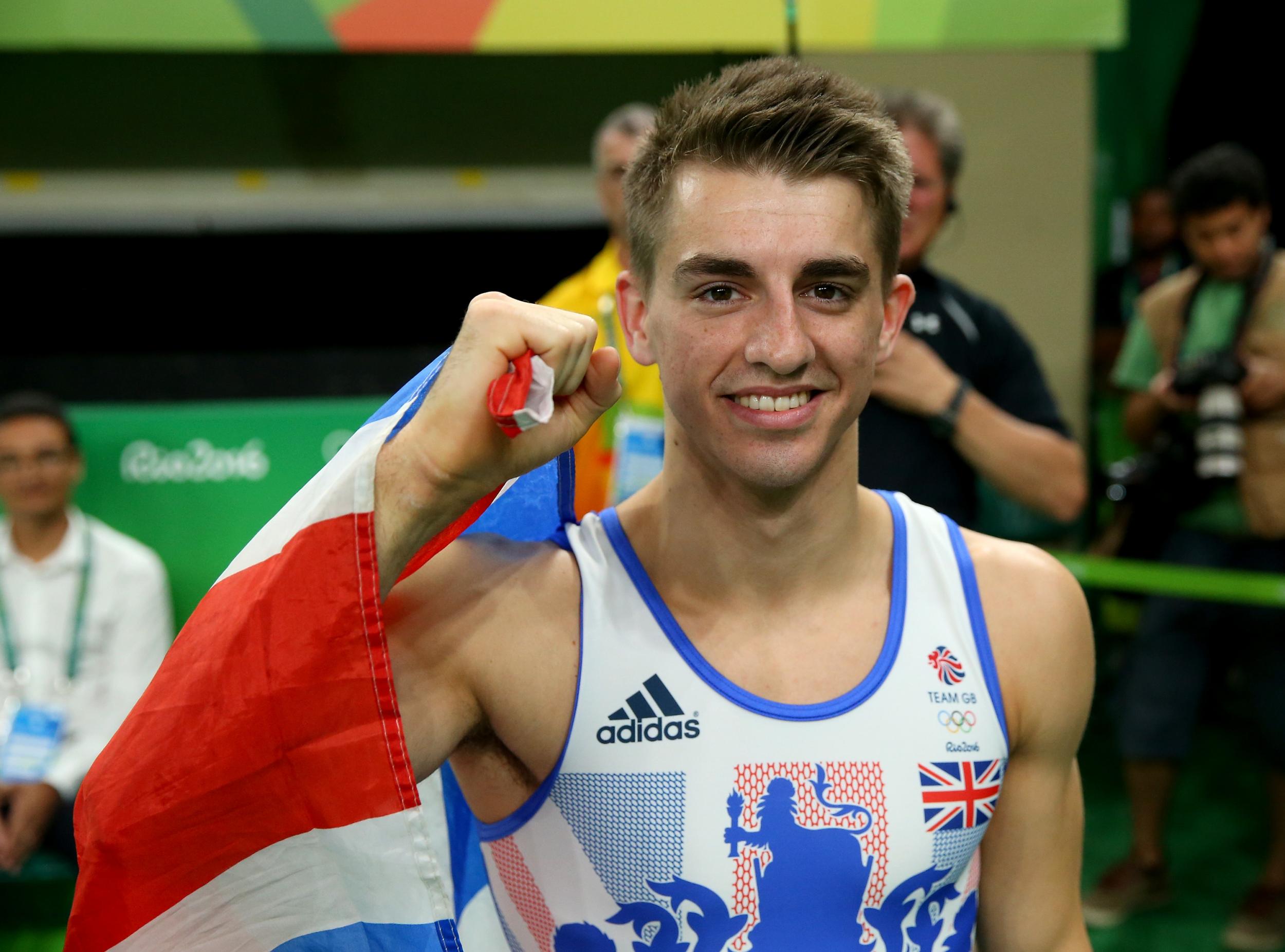Rio 2016: Max Whitlock wins second gold to confirm his status as Britain’s greatest ever male gymnast
Whitlock claimed gold in the men's floor and pommel horse

Your support helps us to tell the story
From reproductive rights to climate change to Big Tech, The Independent is on the ground when the story is developing. Whether it's investigating the financials of Elon Musk's pro-Trump PAC or producing our latest documentary, 'The A Word', which shines a light on the American women fighting for reproductive rights, we know how important it is to parse out the facts from the messaging.
At such a critical moment in US history, we need reporters on the ground. Your donation allows us to keep sending journalists to speak to both sides of the story.
The Independent is trusted by Americans across the entire political spectrum. And unlike many other quality news outlets, we choose not to lock Americans out of our reporting and analysis with paywalls. We believe quality journalism should be available to everyone, paid for by those who can afford it.
Your support makes all the difference.It was with characteristic modesty that Max Whitlock acknowledged he had achieved something but the 23-year-old gymnast took his nation’s Olympic success story to a new level on Sunday night, delivering the first ever British gold in his sport and becoming the first Briton to win two individual golds on the same day in the process.
Not since the three-day eventer Richard Meade won team and individual golds at the Munich Olympics of 1972 has a competitor delivered two golds in one day. In tears after collecting his first but more measured after the second, he has cemented his status as Britain’s greatest ever gymnast on Sunday, winning gold in individual floor and pommel apparatus events.
It was his performance on the floor which really took the breath away and that was the one he was talking about on Sunday night. “It hit me like a ton of bricks because I wasn’t watching the other scores,” he said. “That’s [made] history too which is mental. Now I can say I’ve finished the Olympics with a smile on my face,” he said. “Last year was my first final on the floor.”
Though that competition was the more significant, the pommel contest brought the fascination of his battle with teammate Louis Smith. Whitlock’s accomplishments reduced to fleeting insignificance the silver that Smith secured – a repeat of London 2012 for him. Smith did not disguise his feelings. “I’m disappointed I’ve not got Olympic gold. It’s my third Games. Who else would not want gold?”
Smith did at least feel that his silver was vindication who thought he shouldn’t be here. “There were so many comments when the team was selected about ‘why is Louis in the team? He doesn’t deserve to be in the team. He isn’t as good as Max,’” he said. But I would rather lose to Max than anyone else. I’ve always been playing catch up with Max.”
Even in the Team GB circles, the talk early on Sunday morning had been only of the pommel competition. The notion of Whitlock, who has been developing to a world class level at the South Essex Gymnastics club over the last 11 years, arriving into the Olympic arena and reducing the Japanese floor gymnasts to insignificance defied logic.
A routine of flawless quality defied those preconceptions, though. What placed him above those expected to beat him was the judgement of what level of difficulty to attempt. The Japanese challenge was certainly seen as huge, but first Kohei Uchimura overstretched himself – stepping placing a foot outside the mat. Kenzo Shirai did so three times. The opposition simply crumbled.
On the pommel, Smith’s 15.833 had looked to be gold material. When the Ukrainian Oleg Verniaiev, one of the favourites, had fallen from the horse as Smith waited to perform, the stars seemed to be aligning for the Briton. Whitlock deliberated seconds before his own subsequent routine whether to attempt the difficult ‘Single Russian’ routine, with a 7.1 degree of difficulty. He and his coach agreed at the last minute that he would.
He punched the air when he dismounted, clearly aware that he had performed to the maximum and delivered a gold with a score of 15.966.
Smith looked subdued and was briefly in tears. He said that he had been affected by coming off the pommel during the team men’s event. “I’ve been debating myself ever since that final,” he said. “I’ve not been on social media. [I thought] ‘What if it happens [again] in the individual final?’
“I near lost my hand on the handle [when I started my routine] and thought: Don’t f*** this up.” Smith altered in routine mid-performance. “I finished it and felt such relief that I could still do it.” It was the kind of thought that did not enter Whitlock’s head on a day the kind of which British gymnastics has never known.
Join our commenting forum
Join thought-provoking conversations, follow other Independent readers and see their replies
Comments